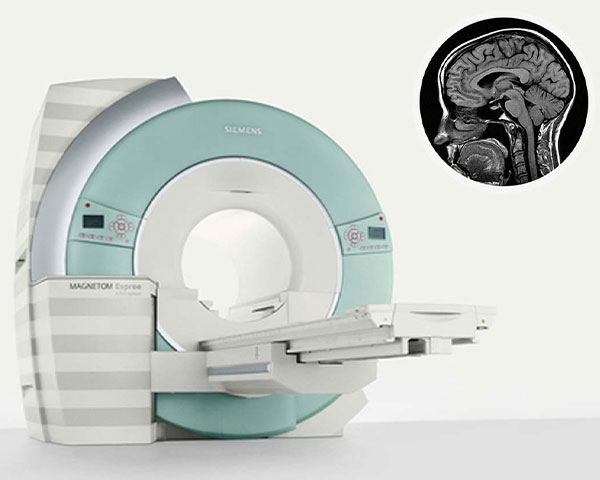- July 30, 2020
- By: Admin
- No Comments
10 Clear Signs You Might Need an MRI Scan
What is an MRI Scan?
MRI (Magnetic Resonance Imaging) is a non-invasive imaging test that helps diagnose medical conditions by producing high-resolution images of the inside of your body. It’s commonly used for soft tissue evaluation, including the brain, spinal cord, joints, and organs. MRI scans are beneficial when doctors suspect internal damage or disease that cannot be detected through other imaging methods.10 Signs That Indicate When an MRI Scan Is Needed
1. Persistent and Unexplained Headaches
If you’ve been experiencing chronic headaches that don’t respond to medication or have unusual symptoms (like vision problems or dizziness), your doctor may recommend an MRI to rule out neurological issues.
2. Chronic Back or Neck Pain
Back pain that persists beyond 6 weeks or worsens over time may require imaging. An MRI helps detect issues like herniated discs, spinal stenosis, or pinched nerves.
3. Traumatic Brain Injury (TBI) Symptoms
After a head injury, even if symptoms seem mild, an MRI may be needed to assess internal bleeding, brain swelling, or damage not visible on a CT scan.
4. Sudden Changes in Vision or Hearing
An MRI scan is often used when patients report unexplained vision loss, double vision, or hearing changes, which could indicate neurological disorders or tumours.
5. Seizures Without a Known Cause
If you’ve had seizures and doctors can’t determine the cause, an MRI may reveal structural brain abnormalities like epilepsy foci or lesions.
6. Joint or Muscle Injuries Not Healing Properly
When X-rays don’t show the whole picture and pain persists in joints or soft tissue, an MRI can detect ligament tears, tendon injuries, or early-stage arthritis.
7. Symptoms Suggesting Multiple Sclerosis
If you have symptoms like numbness, fatigue, or coordination problems, your neurologist may suggest an MRI scan to check for signs of Multiple Sclerosis (MS) lesions.
8. Unexplained Abdominal or Pelvic Pain
MRIs are helpful in diagnosing internal issues in the abdomen or pelvis, especially those involving reproductive organs, the liver, or the kidneys.
9. Cancer Detection and Monitoring
When cancer is suspected or needs monitoring, MRIs provide detailed images that help track tumour size, location, and whether it has spread to other tissues.
10. Suspected Stroke or Vascular Disorders
When someone shows signs of a stroke (slurred speech, weakness, confusion), a brain MRI is essential for confirming and locating the damage.
When Is an MRI Scan Needed Over Other Imaging Techniques?
While X-rays are great for bones and CT scans offer quick overviews of the body, MRIs provide superior soft tissue contrast. Here’s when MRIs are preferable:- When neurological conditions are suspected
- When soft tissue injuries need to be evaluated
- For detailed tumour analysis
- When non-radiation imaging is preferred (especially for children and pregnant women)
Benefits of Early Detection Through MRI Scans
- Early diagnosis of severe conditions
- Avoiding unnecessary surgeries
- More accurate treatment plans
- Faster recovery through targeted therapy
- Reduced risk of complications
Frequently Asked Questions About MRI Scans
Understanding the MRI Scan Process
Here’s what you can expect:- Pre-scan Questionnaire: Ensure you’re safe for the scan (no pacemakers, metal implants, etc.).
- Preparation: You’ll change into a gown and remove all metal objects.
- Scan Time: You’ll lie down in the MRI machine. It’s noisy, so earplugs or headphones may be provided.
- Contrast Dye (If Needed): Some scans require a dye injection to enhance visibility.
- Results: Your doctor will review the images and discuss the next steps.
How to Prepare for an MRI Scan
- Notify your physician about pregnancy, kidney problems, or implants.
- Bring prior scans or reports for comparison.
- Eat light unless instructed otherwise.
- Wear comfortable, metal-free clothing.
When MRI Scan Is Needed in Specific Medical Specialties
- Neurology: For stroke, MS, tumours
- Orthopedics: For torn ligaments, herniated discs
- Cardiology: For evaluating heart structures
- Gynecology: For fibroids, endometriosis
- Oncology: For cancer detection and monitoring
How Often Can You Get an MRI Scan?
There’s generally no strict limit since MRIs don’t use radiation. However, frequency depends on your condition, treatment plan, and insurance coverage.Alternatives to MRI Scans
In some cases, doctors may recommend alternatives:- CT scans: Faster, good for emergencies
- Ultrasound: Preferred for pregnancy, gallbladder, or vascular scans
- X-rays: Best for bones and joints

